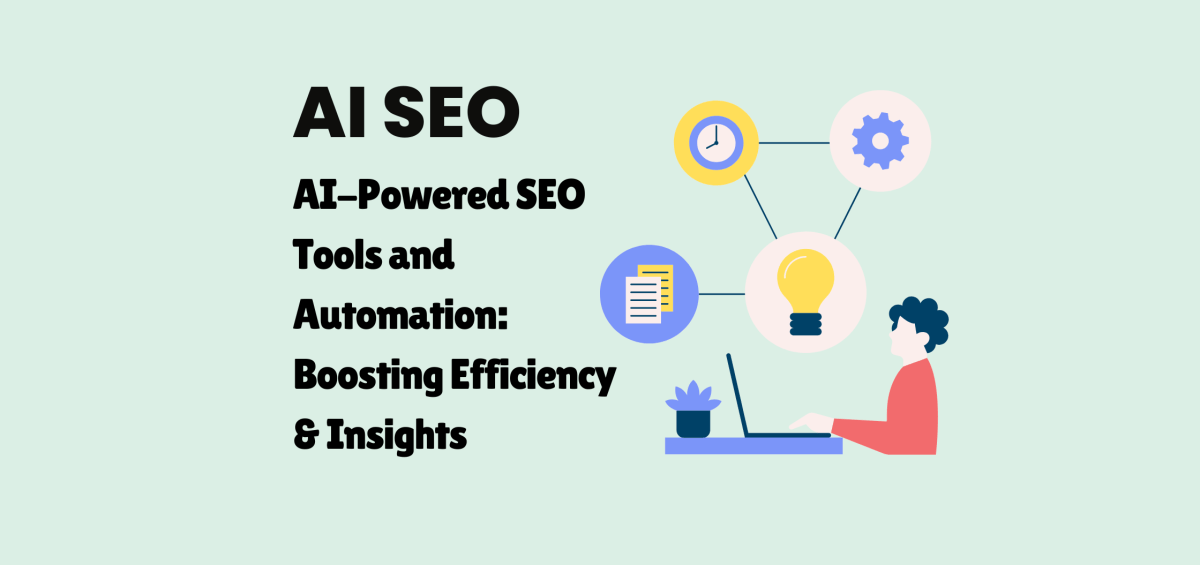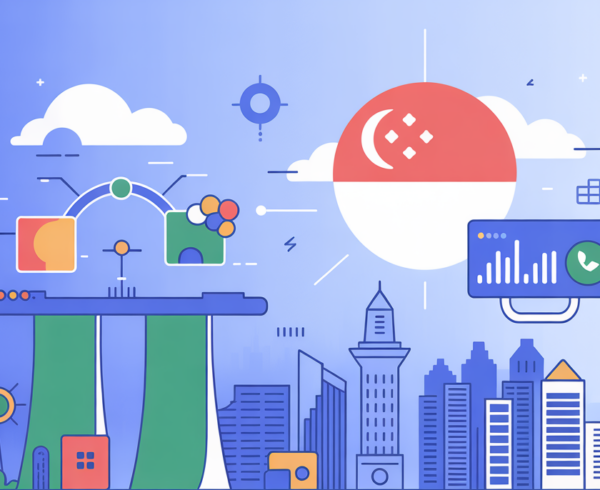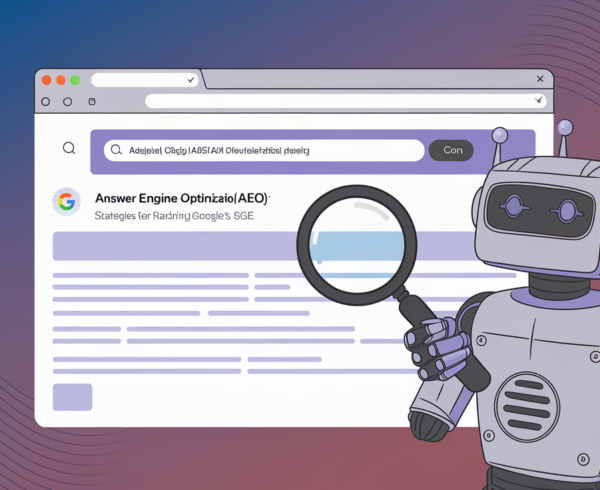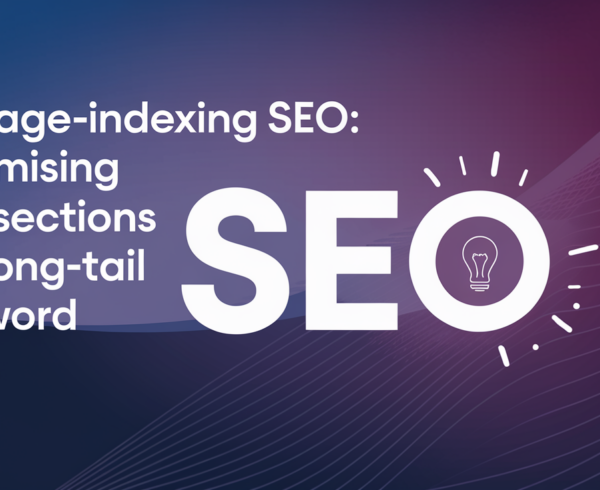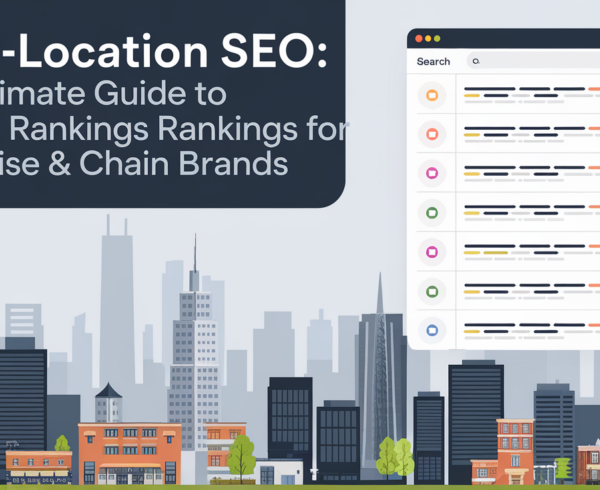Introduction
The landscape of search engine optimization is more competitive than ever, with algorithms becoming increasingly intelligent thanks to artificial intelligence. For any SEO agency aiming to lead the pack, embracing AI-powered SEO tools is no longer optional—it’s essential. These tools go beyond simple automation, offering predictive analytics, smart insights, and actionable recommendations that transform how SEO professionals work.
In this article, we’ll explore how AI-powered SEO tools are transforming the SEO process, discuss how automation can save time and resources, and offer actionable steps for integrating these advanced tools into your SEO strategy. Whether you’re looking to improve keyword research, optimize content, or track performance, AI is the ultimate ally for the modern SEO strategy.
How AI is Transforming SEO Tools
AI has already begun to play a significant role in various aspects of SEO, from content creation and keyword research to technical optimization and performance tracking. AI-driven tools analyze vast amounts of data in real time, providing SEO professionals with deeper insights, predictive recommendations, and the ability to automate repetitive tasks.
1. AI-Driven Keyword Research
Keyword research is one of the cornerstones of SEO, but with traditional methods, it can be time-consuming and tedious. AI-powered keyword research tools, like SurferSEO, Semrush, and Ahrefs, take the guesswork out of the process by leveraging AI to analyze search intent, identify long-tail keywords, and spot trends.
- Search Intent Analysis: AI tools can analyze the intent behind different search queries, categorizing them into informational, navigational, or transactional. This allows businesses to create content that precisely meets user needs, improving rankings and engagement.
- Topic Clustering: Instead of just targeting single keywords, AI tools can identify clusters of related keywords and suggest content themes to cover. This strategy allows businesses to target broader topics and improve their chances of ranking for multiple related search queries.
- Trend Prediction: AI can analyze search volume trends and competition levels, offering predictive insights that help businesses target high-potential keywords before they become saturated.
Actionable Tip
Leverage AI-powered tools for keyword gap analysis to discover keywords that your competitors are ranking for but that you haven’t targeted yet. AI will also suggest content ideas that align with these keywords, giving you a competitive edge in organic search.
2. AI for Content Optimization and Creation
Once you’ve identified the right keywords, the next step is to create and optimize your content. AI tools are revolutionizing content optimization by helping businesses improve content quality, readability, and SEO performance.
- Content Generation: AI-based platforms like Jasper AI, Hashmeta AI SEO, and Writesonic help you generate content quickly. These tools can provide prompts, write introductions, or even complete blog posts based on specified guidelines, cutting down content creation time.
- SEO Content Optimization: AI-powered SEO tools analyze top-ranking pages for a given keyword and provide suggestions on how to optimize your content. Tools like MarketMuse and Frase use AI to recommend semantic keywords, suggest internal linking strategies, and even propose content structures that improve readability and engagement.
- Content Grading: AI tools can also assess the quality of your content, identifying readability issues, keyword usage, and other factors that may affect SEO performance. These tools can score your content, so you know exactly where to improve.
Actionable Tip
Use AI tools to analyze the content of your competitors who rank for your target keywords. This will give you a clear understanding of the type of content that works well and enable you to create better, more in-depth content that stands out.
3. Automating Routine SEO Tasks
One of the biggest advantages of AI in SEO is the ability to automate repetitive tasks that would otherwise take up significant time and resources. AI tools can handle everything from technical audits to link building, allowing SEO professionals to focus on higher-value tasks like strategy and creative development.
- Technical Audits: AI-powered SEO tools like Screaming Frog, Sitebulb, and SEMrush can automatically run technical audits on your website, identifying issues like broken links, slow page speed, duplicate content, or missing metadata. These tools not only detect issues but also provide actionable recommendations for fixing them.
- Link Building: Building backlinks is essential for SEO, but finding quality backlinks can be a time-consuming task. AI-driven tools like BuzzSumo and Linkody help automate the process of finding relevant websites for link building, analyzing competitor backlinks, and identifying outreach opportunities.
- SEO Reporting and Tracking: AI-powered SEO reporting tools can automatically track keyword rankings, traffic performance, and other metrics, delivering insights in real-time. Tools like Google Analytics and DataStudio integrate AI to generate comprehensive reports that offer actionable insights into your SEO efforts.
Actionable Tip
Automate your routine technical audits with AI-driven tools. Set up periodic audits that automatically flag issues like broken links, duplicate content, or on-page SEO problems, allowing you to address them proactively.
4. Predictive Analytics for SEO
Predictive analytics, powered by AI, allows businesses to forecast SEO performance and adjust strategies in real time. By analyzing large datasets, AI tools can predict how certain changes will impact rankings, traffic, and conversions.
- Performance Forecasting: Tools like BrightEdge and SpyFu use AI to predict the performance of your SEO efforts based on historical data, industry trends, and algorithm updates. This helps businesses anticipate changes in rankings and traffic before they happen.
- Traffic Forecasting: AI tools can also predict how your traffic will change in response to specific changes on your website (e.g., adding new content, improving page speed, or acquiring backlinks).
- Opportunity Identification: AI analyzes search trends and competitor data to identify emerging opportunities for new keywords, content topics, and untapped niches, allowing businesses to seize high-potential growth areas.
Actionable Tip
Leverage AI tools to forecast potential ranking improvements or traffic shifts based on your planned SEO activities. This can help you prioritize which optimizations will yield the greatest ROI.
5. AI-Driven SEO Analytics and Reporting
AI-powered reporting tools provide deep insights into your SEO performance and identify areas for improvement. Rather than manually analyzing keyword rankings, traffic data, and user behavior, AI-driven analytics tools can process this data in real-time and deliver predictive insights.
- Data Visualization: Tools like Google Analytics with AI-driven dashboards help you visualize traffic trends, user behavior, and keyword performance. These tools can automatically generate visual reports that make it easier to understand your SEO performance.
- Behavioral Insights: AI tools can analyze user behavior on your site, helping you understand how visitors interact with your content, which pages are underperforming, and where users drop off. This information allows you to adjust your content and strategy accordingly.
Actionable Tip
Use AI-powered analytics tools to regularly monitor key metrics like organic traffic, bounce rate, and conversion rate. These tools will alert you to any changes in performance, allowing you to take action immediately.
Conclusion: Empowering Your SEO Strategy with AI Tools
AI is no longer a buzzword—it’s the foundation of modern SEO success. For every SEO agency, integrating AI-powered tools means optimizing smarter, scaling faster, and outperforming competitors. From keyword research to predictive analytics, AI elevates every part of the SEO workflow.
To stay ahead of the competition, it’s essential for businesses to integrate AI-powered tools into their workflow. These tools not only streamline the SEO process but also provide deeper, more actionable insights that help businesses stay ahead of trends and drive measurable results.
In the next article, we’ll dive into AI-Driven Content Strategies and explore how businesses can use AI to create high-quality, SEO-optimized content at scale. Stay tuned!

